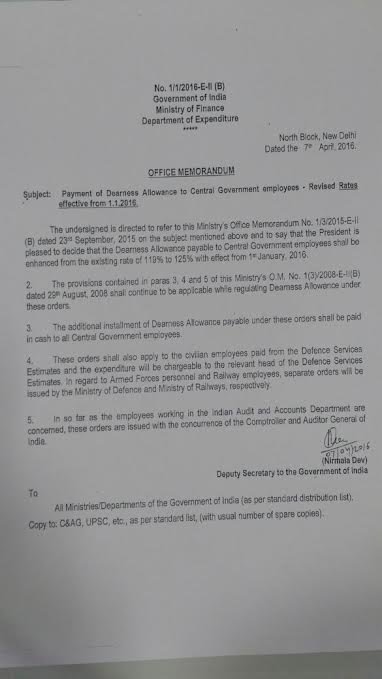Given the enhancing security threats from varied sources and the fact that it is the duty of the Union to protect the states against internal disturbances, a National Security Policy is needed, as also the machinery to implement it.
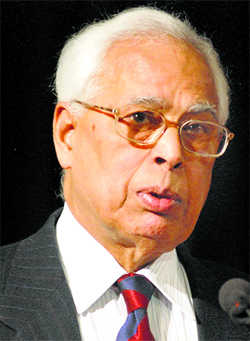
NN Vohra.
NN Vohra
J&K Governor
IT would be relevant to note that the states have the constitutional responsibility for the maintenance of police and public prder and are vested with powers to make all required laws and to take all necessary executive decisions for ensuring internal security within their jurisdictions. Insofar as the Union is concerned, it has the much larger responsibility of protecting the states against war and external aggression and internal disturbances. While our Constitution makes reference to security and not to national security, it would be incorrect to arrive at the conclusion that the Union and the states have distinct and separate duties for safeguarding the country and providing safety and security to the people of India.
Understanding national security
It would be useful to have a broad understanding of the term national security. In simple words, national security comprises all facets of external security, which relates to protecting the country’s territories against war and external aggression, and internal security which includes all matters relating to the maintenance of peace and public order across the length and breadth of the country. It needs being recognised that our security concerns relate to innumerable targets and activities within our country and it would no longer do to merely focus on defending our frontiers. I would go to the extent of saying that, today, there is no important institution or activity which is not insecure. It has, thus, become extremely essential to safeguard almost every arena and to particularly secure arrangements relating to food, water, energy, nuclear power, science and technology, environment, ecology, finance, business, commerce, banking, cyber space and other important quarters.
Union-state understandings required
We have neither secured the required Union-state understandings nor developed a pan-India approach which would meet the requirements of a National Security Policy. Insofar as the role of the states is concerned, the Union has not so far been able to convince them to fully accept their constitutional duty to maintain internal security within their jurisdictions. In this context, it needs being stated that, in the years past, a majority of the states have been unable to establish efficient intelligence agencies and maintain well-trained police forces in adequate strength to effectively put down any arising disturbance. Consequently, the states have been perennially relying on the Union for the deployment of Central Armed Police Forces, and even the Army, for the restoration of normalcy in the disturbed areas. Thus, in the past decades, particularly in the North-East region and Punjab, the Union’s Armed Forces have had to be deployed on an extensive scale and for prolonged periods. Among the consequences of such deployments, there have been recurring agitations against the alleged violations of human rights of the affected populations and vociferous demands for the repeal of the Armed Forces Special Powers Act. It is not easy to explain the Government of India’s approach, particularly in the context of the constitutional prescription that it shall be the Union’s duty to protect the states against internal disturbances. Considering the developments which led to the demolition of Babri Masjid, questions have been repeatedly raised about what exactly is the Union’s constitutional responsibility, particularly when it is duly warned and is well aware of an arising conflagration, as was the case before the demolition of Babri Masjid. Furthermore, after the 8/11 terror attack in Mumbai, grave concerns have also been voiced about the Union’s actual capability for dealing with such challenges. There must not be any further delay in promulgating a well-considered National Security Policy which is founded in unambiguous Union-states understandings to work together for collectively safeguarding the country’s unity and territorial integrity. It is a matter for serious concern that the states have not been able to provide adequate budgetary resources for maintaining their police forces in sufficient strength. The states are also reprehensible for interfering with the day-to-day working of the police organisations and politicising their functioning, which has resulted in eroding the discipline, integrity, morale and professionalism of the constabularies. It is regrettable that, to explain their varied failures, the states have been advancing the specious argument that they suffer from paucity of resources and, in any case, it is the responsibility of the Union to provide them adequate funds for the expansion and modernisation of their police forces as under the Constitution, it is the duty of the Union to protect the states against internal disturbances. Over the years, whatever may have been the complexion of the political parties in power, it has been the Union’s general tendency to avoid any confrontation with the states, far less question them about the factors and influences which have been leading to recurring internal disturbances. Consequently, whenever approached by a state in distress, the Union has been, without fail, providing assistance by deploying Central Armed Police Forces, and even the Army, to restore normalcy in the disturbed area. Thus, the Union has concerned itself essentially with dousing fires and has rarely ever questioned the states about the root causes of the disturbances in their areas. The Union has also been hesitant in exercising its authority under Article 256 of the Constitution to issue appropriate directives to the affected states for taking the required actions to timely quell arising disturbances. On the contrary, the practice actually followed in the past decades has been for the Union Ministry of Home Affairs to merely issue “advisories” to the states concerned in regard to the management of emerging situations. Thanks to the Home Ministry’s amiable approach of only issuing cautionary notes to the states concerned, it has not been possible to pre-empt any arising disorder.
National Security Policy needed
If we recognise the gravity of the progressively enhancing security threats which are emerging from varied sources, from our neighbourhood and beyond, and also remember that it is the duty of the Union to protect every state against internal disturbances, then no more time can be lost in the Union taking immediate initiatives for finalising a holistic National Security Policy and, thereafter, proceeding to establish the required nationwide machinery for implementing it. For securing the required Union-state understandings in the arena of national security management, it would be enormously beneficial if the draft National Security Policy and all major issues relating to its implementation are discussed and settled in meetings with the Chief Ministers under the aegis of the Inter State Council (ISC), which is chaired by the Prime Minister. Once the states have clearly accepted their responsibility to maintain internal security, there would be no reason why they should not become progressively capable of effectively dealing on their own with any arising internal disturbance. And when the States become self-reliant, the Union shall be able to progressively reduce the large-scale deployment of its Armed Forces for dealing with disturbances in the states. In the foregoing context, it needs being noted that except in Jammu and Kashmir, where we are fighting Pakistan’s proxy war, the recurring deployments of the Army elsewhere in the country, for dealing with local insurgencies and internal disturbances in the states, has the rather worrying potential of blunting the Army’s edge and, besides, generating internal problems regarding the operational efficiencies of its officers and men who are recruited, trained and equipped to fight and destroy the enemy at first sight and not to be involved in situations in which the rules of engagement demand considerable restraint. Once the Union has been able to promulgate a bipartisan National Security Policy, the next important step would be to undertake a thorough state- and Union Territory-wise critical review to identify deficiencies in the existing security administration systems. Side by side, it shall be useful to carry out a close critical assessment of the Union’s own wherewithal for discharging its constitutional responsibility to safeguard the nation. The Union would need to review its obligations on various fronts and, inter alia, enhance allocations to enable the central intelligence agencies to significantly enlarge their capacities for providing timely intelligence to various quarters, at the Centre and in the states. And among their many responsibilities, the intelligence agencies shall need to urgently equip themselves for particularly protecting the defence and governmental establishments, the financial sector and large public and private organisations against cyber crimes.
Strengthen NIA
Needless to stress, when Union-atates understandings are arrived at in regard to the management of national security, a very important agreement shall have to especially provide for the enactment of an anti-terror law, enforceable in the entire country, which enables the Union agency concerned to take immediate cognisance and launch investigations without having to obtain sanctions and clearances from varied state or Central authorities. As of now, we have only the NIA which was enacted in a rush after the 8/11 terror attack. This statute requires considerable strengthening to ensure immediate cognisance of offences committed anywhere in the country to be followed by prompt investigations. Also, the list of offences covered by this law need to be dynamically reviewed and enlarged and, side by side, attention given to upgrade and enhance the powers and modalities for special investigations. Further, the obtaining procedures for the establishment of Special Courts and the completion of trials within given time frames also need to be urgently reviewed and rationalised. If the NIA is to function as the nodal agency to counter terrorism, cyber crimes and other major threats, it shall need to be provided very strong and prompt support by the Central and state intelligence agencies and by the law enforcement machinery all over the country. Many years have elapsed since it was proposed to establish the National Counter Terrorism Centre (NCTC). If I recall correctly, this proposal was opposed by the states which had demanded that the law to establish NCTC should be passed by the Parliament and, further, that this organisation should be administered by the Union Home Ministry and not by the Intelligence Bureau. These arguments reflect the distrust of the states in the functioning of the security organisations managed by the Union and yet again point to the urgent need for arriving at the required Union-states understandings to lay the bedrock of an effective National Security Policy.
Trained manpower necessary
I now come to another very critical issue which has continued to be neglected. This relates to the fundamental necessity of ensuring that all security management departments and agencies are manned by personnel who are adequately trained and equipped to perform the sensitive tasks which they are required to handle. Traditionally, appointments to posts at various levels in the Home and Defence Ministries and other security management organisations have been from among various generalist cadres. Over the years, varied problems have arisen because the large majority of those deployed in such important agencies may have had no prior experience of working in the security management arena. Serious personnel-related problems have also been surfacing in the functioning of the Central intelligence agencies, particularly in the Research and Analysis Wing. For want of a well-planned approach, deficiencies have been faced in regard to the availability of the required number of adequately trained and experienced functionaries who are required for manning the various organisations which comprise the Union’s security administration apparatus. Problems relating to the shortage of trained human resource would pose an even larger problem once the National Security Policy has been promulgated and a significantly enlarged apparatus is required to be made operational. Establish a National Security Administrative Service There have been significant shifts in the geo-political environment in our neighbourhood and beyond and there are new threats to our country’s interests and security. In this context, I would yet again stress that we can no longer afford to follow ad hoc and disparate approaches in regard to national security management and the Government of India should not lose any more time in taking the full step to establish a National Security Administrative Service whose constituents, selected on the basis of a pan-India competitive examination, should be got especially trained in the various required areas and deployed to man the Government of India’s security administration system. Thereafter, members of this service could also be progressively allocated to the states for managing their security management machinery.Set up a new dedicated ministryMy concluding observation relates to the need to establish a new ministry which is entirely dedicated to the efficient implementation of every component of the National Security Policy and to keep a close and constant watch to see that the states effectively maintain internal security in their domains. It needs being recognised that the Union Ministry of Home Affairs is faced with ever increasing day to day pressures on varied fronts and its senior echelons are required to deal with a horde of subjects, of which one relates to internal security management. With its existing responsibilities it would be impractical to expect this ministry to devote whole time attention only to security management related issues, all of which require zero delays and immediate decisions. In this context, if national security is to be effectively managed, the time has come to establish a dedicated Ministry of National Security Affairs which is led by a senior Cabinet minister and manned by handpicked and especially trained functionaries drawn from the National Security Administrative Service, which I have earlier proposed. Finally, I would yet again stress that if the sovereignty, unity and territorial integrity of our country is to be effectively protected then it is of the foremost importance that the Union and States act in very close concert to ensure the efficient implementation of the National Security Policy. It is equally necessary that all matters relating to National Security are viewed with utmost concern and prompt decisions are taken to ensure that not the slightest chink is left to subvert the national interest.(Excerpts from the 12th RN Kao Memorial Lecture delivered on Jan 22, 2018 in New Delhi)





















































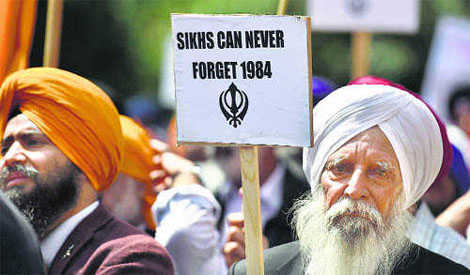
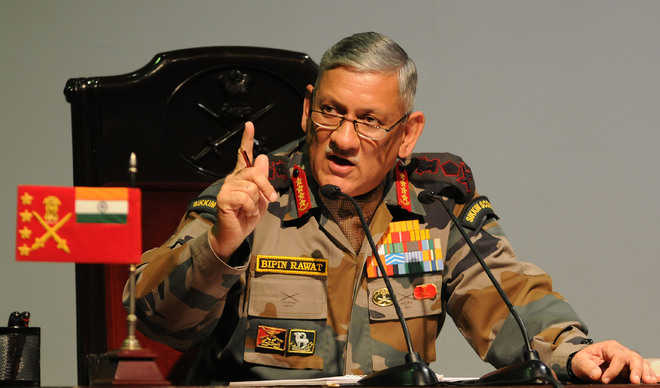
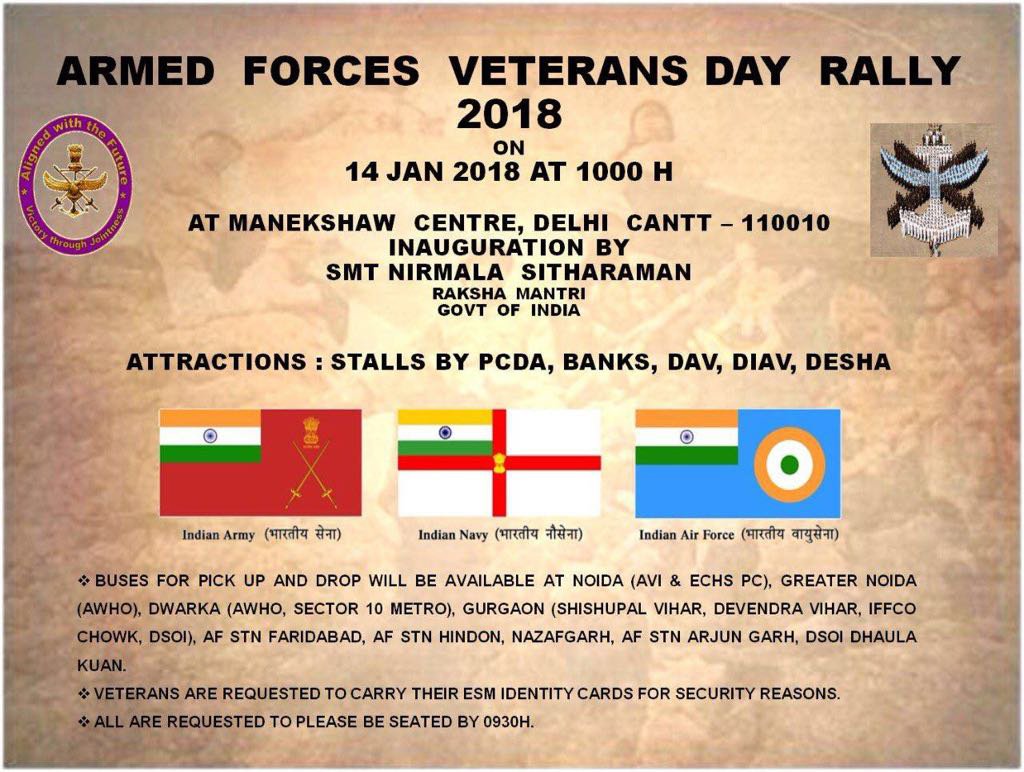
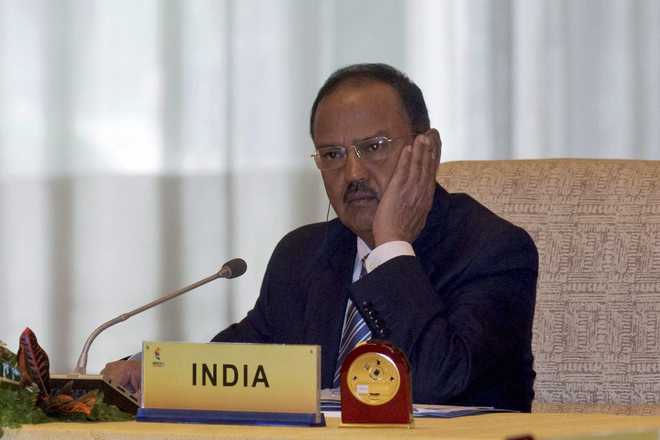
 PTI
PTI


